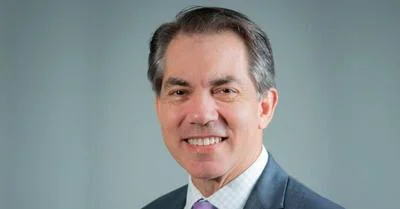Dr. Anthony DiGiorgio, a neurosurgeon and senior affiliated scholar at the Mercatus Center at George Mason University | Mercatus.org
Dr. Anthony DiGiorgio, a neurosurgeon and senior affiliated scholar at the Mercatus Center at George Mason University | Mercatus.org
A national health analyst said the federal 340b drug discount program is leading to increased health care costs for patients.
At least 161 Texas hospitals participate in 340b, according to 340bHealth.
“Want a clear example of how hospitals are driving up healthcare costs? Let’s talk about the 340B program,” Dr. Anthony DiGiorgio, a neurosurgeon and senior affiliated scholar at the Mercatus Center at George Mason University, posted on X. “This program lets hospitals buy drugs at massive discounts, then resell them to patients with private insurance—keeping the profits.”
“Minnesota, one of the few states that tracks this well, recently released a damning report,” said DiGiorgio. “In 2023, hospitals generated over $600 million in 340B revenue. They received $1.5 billion in drug payments but paid just $734 million to acquire those drugs, plus $120 million in administrative fees (more grift).”
Established in 1992 and administered by the Health Resources and Services Administration (HRSA) the program aims to provide financial relief to healthcare providers serving vulnerable populations, allowing them to stretch their scarce resources and reach more eligible patients.
Hospitals participating in the 340B program can use the savings to fund essential services and programs, such as free or low-cost medication assistance, expanded access to healthcare, and community outreach initiatives.
Participating hospitals, however, “often extend their 340B discounts to clinics in well-off communities, where they can charge privately insured patients more than those on Medicaid,” reported the Wall Street Journal.
“In some cases, the program appears to be bolstering profits in well-off areas more than it is underwriting services in less-privileged neighborhoods,” said the Journal article.
“Think pharma is to blame for high healthcare spending?” posted DiGiorgio. “Just look at insulin under 340B: hospitals generated over $400 per script! That ‘pharma spending’ isn’t padding Big Pharma’s bank accounts—it’s going to hospitals.”
“And these are nonprofit hospitals, extracting money from both public and private payers,” he said. “Government programs like Medicare and Medicaid accounted for 45% of that revenue. Meanwhile, IQVIA estimates the 340B program alone adds 4+% to your insurance premiums.”
DiGiorgio, previously told Show-Me State Times that drug discounts often aren’t passed along from the hospitals to the patients.
“Because the discount is mandatory, many drugs come out with higher list prices than they normally would, but patients pay that copay at the higher list price,” he said. “Patients are actually paying more than they otherwise would if the 340b program didn't exist.”
He posted on X that the program "has become a faucet, funneling money from hardworking Americans to hospital systems—and padding executives’ salaries.”





 Alerts Sign-up
Alerts Sign-up